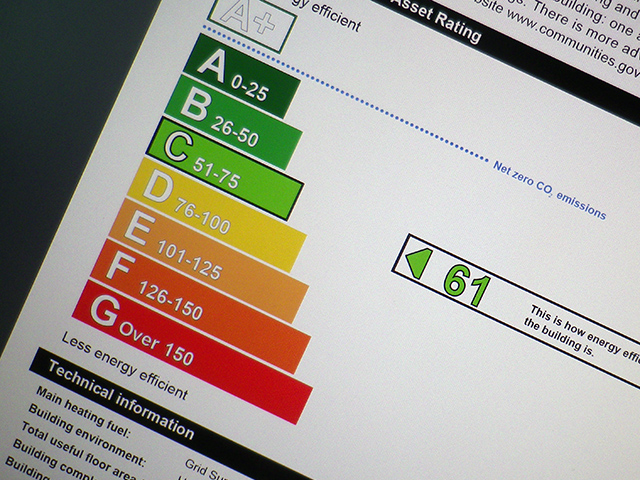A Commercial EPC is required for all commercial premises over a size of 50m2 that are newly built, or about to be rented or sold. The EPC – standing for Energy Performance Certificate – is issued to prove that the specific building complies with Building Regulations aimed towards CO2 emissions and therefore doesn’t negatively impact the atmosphere.
PHH Energy are able to provide a Commercial EPC to you, regardless of where you are in the country. This will include a detailed analysis of your property’s energy use, as well as the grade we have awarded. We will also detail the ways in which you can further improve the energy efficiency of the building, in order to achieve an even higher EPC rating. The issued EPC will be valid for 10 years.
In order to ensure that we provide the highest possible service when it comes to your Commercial EPC, we use SBEM modelling software which ensure accuracy and professionalism.
Here are some commonly asked questions:-
Why energy performance certificates are required?
Energy Performance Certificates (EPCs) are required for almost all commercial and industrial use buildings, effectively those defined as non dwellings, when they are constructed, sold or rented out under Article 7 of the European Energy Performance of buildings Directive (2002/91/EC), which all European Union member states are required to implement. To tackle this requirement in Britain compliance is covered within the Building Act 2000 Part L as amended 2006 and the Energy Performance of Buildings Directive Statutory Instrument 991:2007 within England and Wales and synonymous legislation in Scotland and Ireland.
“An Energy Performance Certificate (EPC) is intended to inform potential buyers or tenants about the energy performance of a building, so they can consider energy efficiency as part of their investment or business decision to buy or occupy that building.
An EPC will provide an energy rating for a building which is based on the performance potential of the building itself (the fabric) and its services (such as heating, ventilation and lighting). The energy rating given on the certificate reflects the intrinsic energy performance standard of the building relative to a benchmark which can then be used to make comparisons with comparable properties. It is accompanied by a recommendation report, which provides recommendations on how the energy performance of the building could be enhanced, together with an indication of the payback period.”
(CLG Guidance, 2nd edition July 2008)
Energy Assessment Methodology
Non-domestic energy assessments can only be carried out by a suitably qualified and accredited non-domestic energy assessor (NDEA). Only accredited software may be used to assess the energy performance of a building and produce the EPC. The software will either be based on the SBEM or be a DSM. The SBEM or DSM software assesses the energy demands of each individual space in the building in accordance with the activity conducted within that space (examples being office space, kitchens, storage space, etc).
Energy Assessment Methodology
Different activities can result in different periods of occupancy and different required temperatures, as well as varying requirements for lighting and hot water supply. The energy consumption and carbon dioxide emissions are calculated by considering these demands in relation to the details of the building services.
The energy assessor will need to understand the internal layout of the building and for what purpose it is used. The energy assessor will need to validate (via plans and/or physical survey) zone distances, thermal insulation and building services. The SBEM software will use the information provided by the assessor and standard performance tables and will produce the EPC and recommendation report.
How long is an EPC Valid for?
An EPC is valid for 10 years unless significant alterations are made to the fabric or heating/hot water plant, e.g. a Green Deal package has been undertaken or extension added.
Properties excluded from needing an EPC
The following buildings are exempt from requiring an EPC:
- Listed buildings,
- Places of worship,
- Stand-alone buildings of less than 50 square meters (except for residential buildings)
- Temporary buildings with a planned time of use of 2 years or less
- Particular buildings with low energy demand (e.g. barns).
- In certain limited circumstances, buildings to be demolished are exempt from requiring a certificate.
- Buildings that do not use energy to condition the indoor climate – i.e. those that do not have heating or ventilation (e.g. a car park that only has lighting).
Useful Links
FAQs
www.carbontrust.co.uk
www.communities.gov.uk/epbd
Please feel free contact us for further information on this and other service we provide which may help your business.

